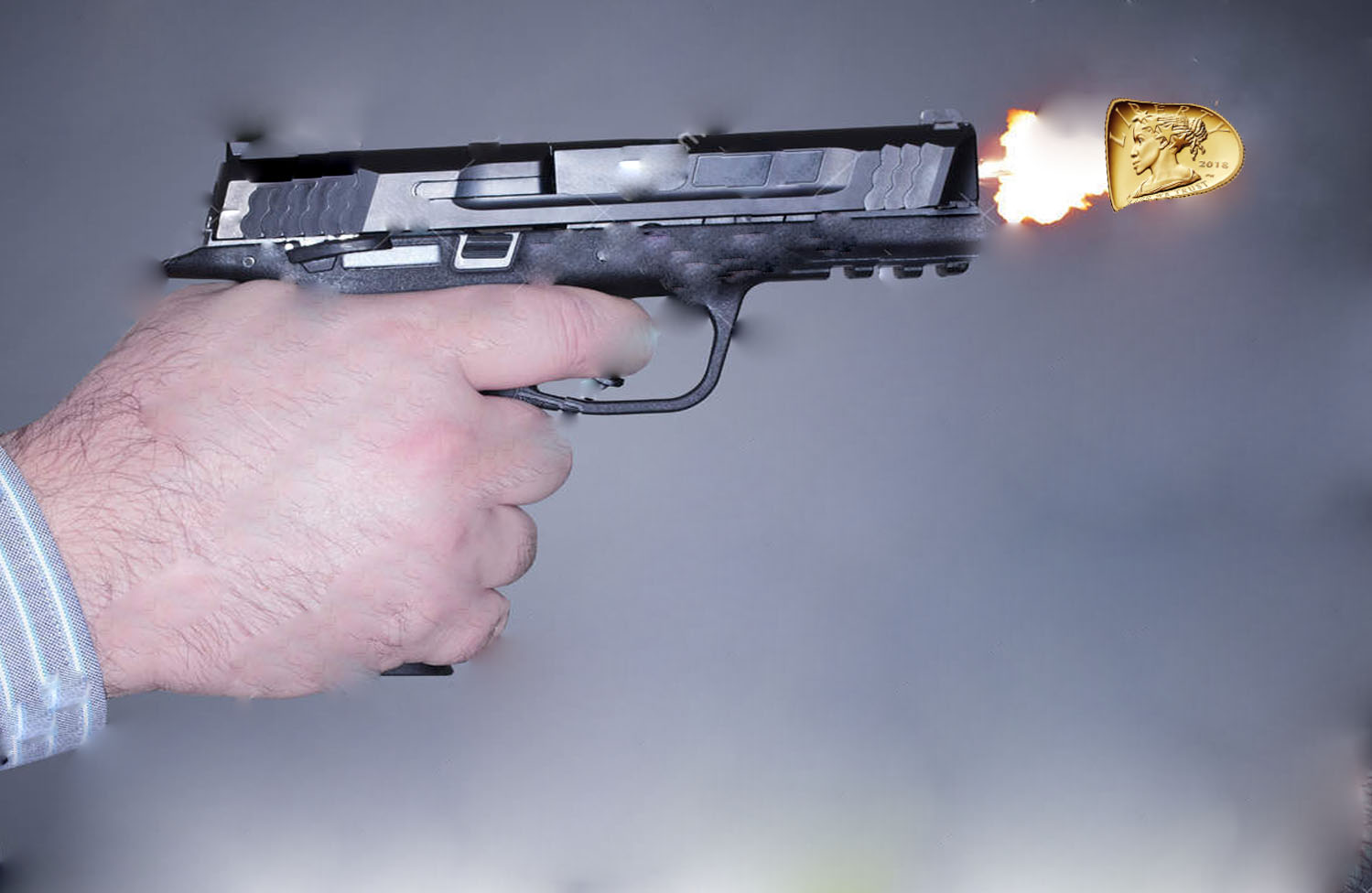We’ve reached a point in American history where the phrase “mass shooting” evokes responses like “not again” or “wait, which mass shooting are we talking about? The new one or the one two weeks ago?” as if this is our society’s new normal. We all take sides in the ongoing debate about gun violence in America, participating, yet again, in a cycle as vicious as the terrible events we fiercely debate.
On Saturday, a hateful individual named Robert Bowers set the societal shooting wheel in motion once more when he walked into a Pittsburgh synagogue and opened fire on members of the congregation. Bowers killed eight men and three women inside the Tree of Life Synagogue during Shabbat services on Saturday morning, and following a gunfight with Pittsburgh police and SWAT officers, he was captured.
Bowers, armed with the all too familiar AR-15 assault rifle and three handguns, told an officer while he was in custody, that he “wanted all Jews to die and all that they were committing genocide to his people,’ the affidavit said.
Jewish tradition teaches the importance of hospitality, of opening one’s place of dwelling and welcoming the stranger with warmth and respect. Perhaps this guiding principle is far too trusting for the society we live in because a man filled with toxic hate and horrific intentions took advantage of the Pittsburgh Jewish community’s hospitality when he did what he did. The worst part about this horrific event is not the details of the event itself, but rather its relevance and eventual dwindling into nothing more than “another one.”
After every mass shooting, the media takes the haunting details of the recent massacre and initiates two to three days of in-depth analysis, interviews with neighbors who knew victims, and commentary on responses and tweets made by prominent political figures. The protestors protest, gun lovers respond using the timeless “people kill people” rhetoric and nothing changes. Once the shine of a mass shooting dulls, America moves on. So it goes. While many grow tired of this incessant pattern, I believe a solution exists to end gun violence and believe it or not, it starts with the stock market.
Americans own as many as 400 million guns — nearly half of all civilian-owned guns around the world — even though we only represent about 5% of the world’s population. Every individual, part of that incredibly large, and consistently increasing, gun ownership community, represents a potential investor in the arms industry, and this is where our solution exists.
Historically, gun sales tend to rise significantly in the aftermath of a mass shootings because of a knee-jerk response to protect oneself and the people around them. On Sunday, June 12, 2016, Omar Mateen killed 49 people and injured 53 others in a mass shooting attack inside the Pulse nightclub in Orlando, Florida.
The following Monday shares of Smith & Wesson Holding Corp (SWHC.O) rose 11.6%, with Sturm Ruger & Co Inc’s (RGR) shares following closely behind, up 10.7%.
When these sales rise, the market reacts and institutional investors exercise their rights as shareholders to climb aboard the nearest soapbox and speak their minds. According to a 2016 analysis of 23,000 mutual funds by Modern Index Strategy Indexes (MSCI), nearly three-quarters of these funds had “ some exposure to the weapons industry” and half of those funds “had direct exposure to gun manufacturers.” The data uncovered in this survey presents an investor-backed remedy for the gun violence epidemic in America.
Many arms industry investors view gun violence as an issue of public health and, using the power of their stock ownership, they have the ability to engage firearms manufacturers in dialogue.
Publicly-traded gun companies like Smith & Wesson (SWHC), Ruger (RGR) and Vista Outdoors (VSTO) are in several major stock indexes, and these companies together produce approximately 50% of all handguns manufactured in the United States. Interestingly enough, the market capitalizations of these companies all combined total less than $5 billion.
Case in point, a smaller market cap means shareholder opinion can benefit or adversely affect market volatility.
In order to reduce gun violence in America, we need institutional investors to exercise their stock ownership as a leveraging tool to shift the supply and demand dynamics of the firearms industry. When someone invests in a company, they are supporting the actions of that particular business both financially and metaphorically. It is then the responsibility of these owners to speak up when a company they own share of participates in the propagation of morally reprehensible acts of violence.
I am not suggesting that we stop manufacturing weapons, not in the slightest. Every person, be they American or otherwise, has the right to purchase, invest, and partake in whatever business they so choose. What I am suggesting is that no person in this world supports gun violence. Rarely will you find a person on the street who, upon being asked the question, “do you believe mass shootings are good?”, will respond with a heartwarming response speaking on the wonder and bewilderment of human tragedy.
Protestors try and, eventually fail, when going toe-to-toe with gun lobbyists because, more times than not, they come from a place of asking for discontinuing of production for a highly lucrative market. This rhetoric will never produce the result these activists hope to achieve.
If we shift the approach to asking investors to engage with the companies they invest in, and insist they advocate for “smart” technology in the weapons making process, the industry creates more innovative products, the market responds well, and the mass shootings will decrease.





